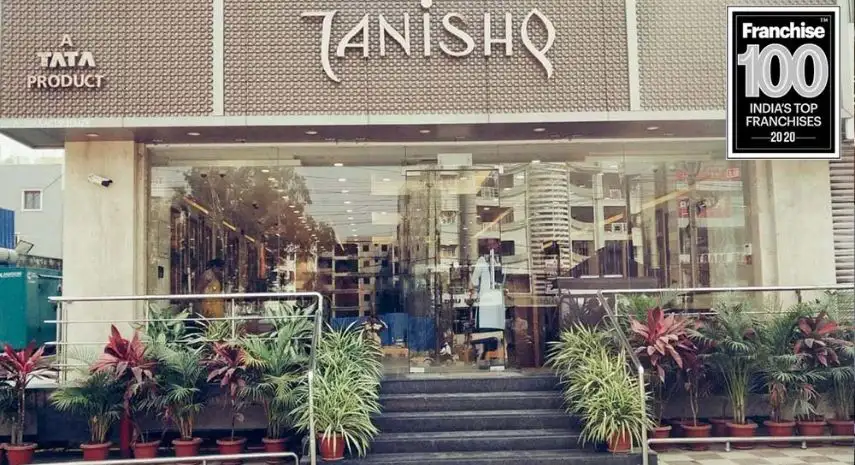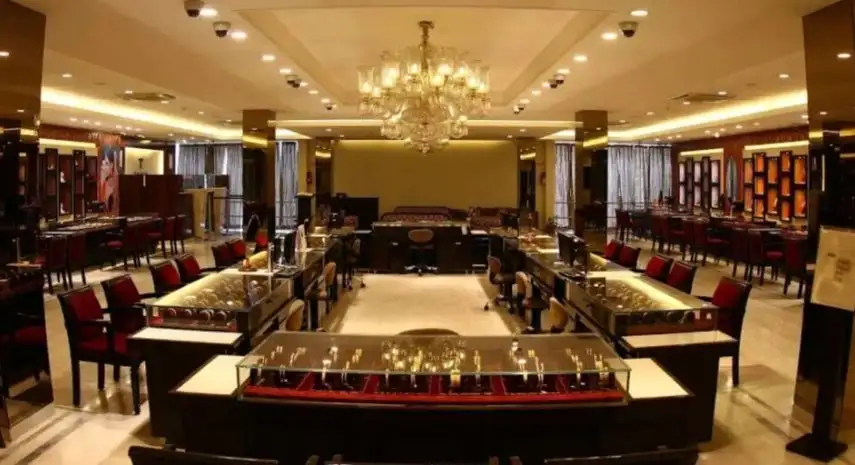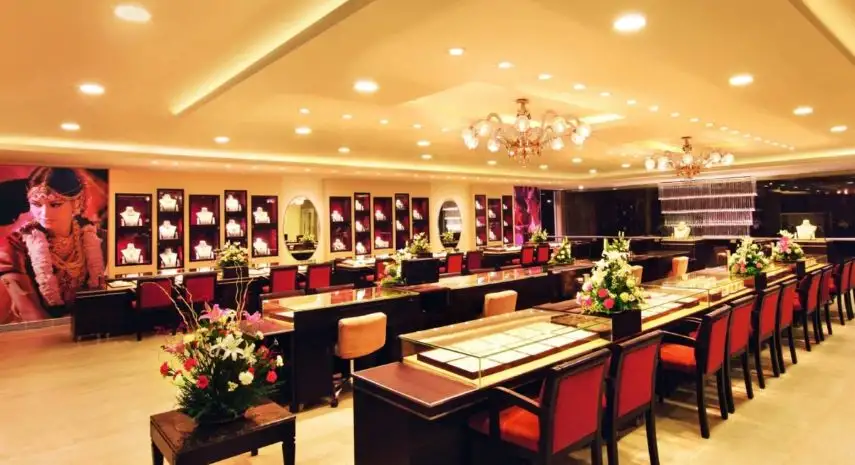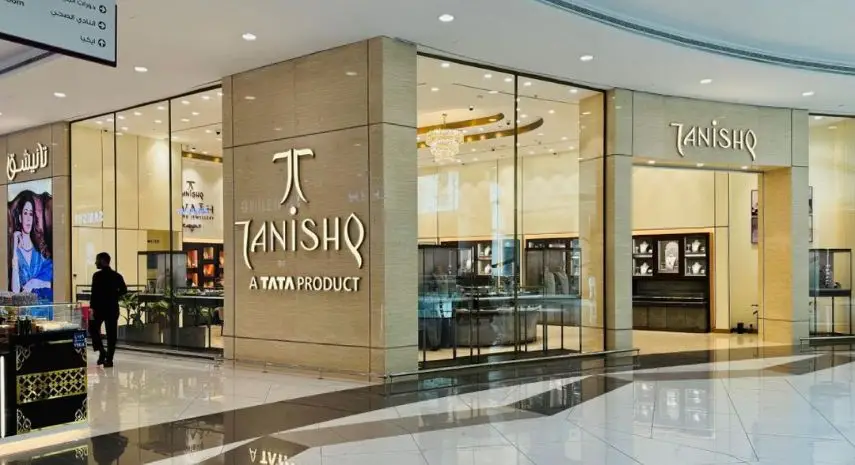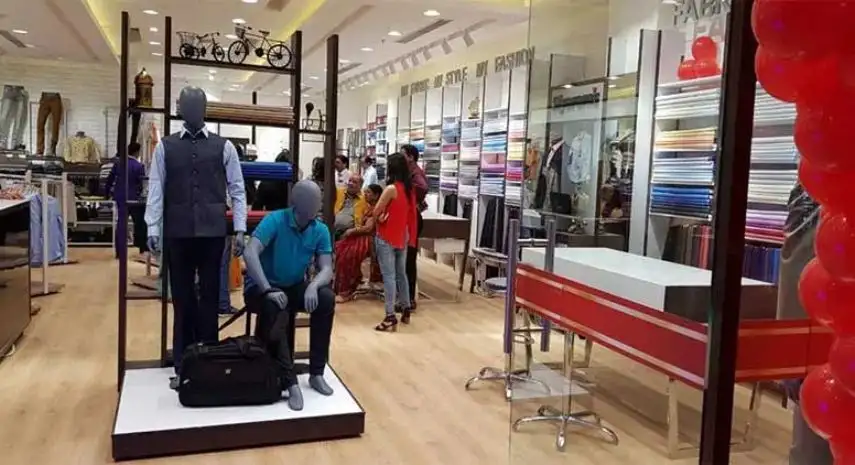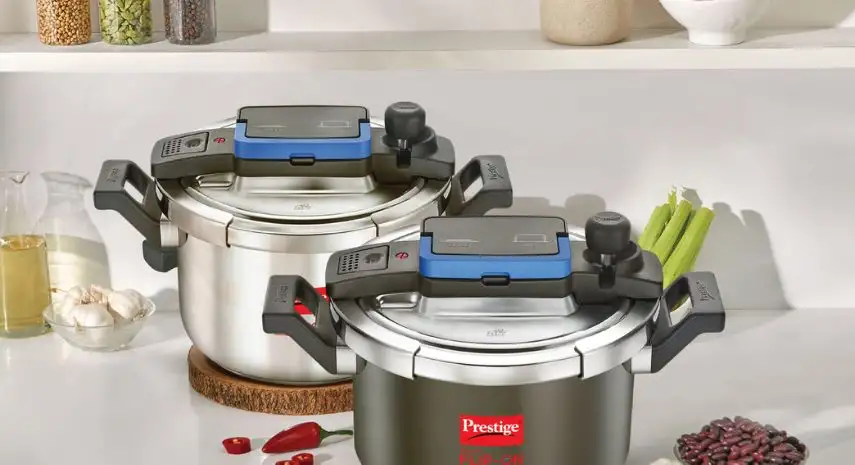Established
1994
Franchise Units
400
Minimum Investment
₹ 15,00,00,000
Franchise Fee
₹ 50,00,000
Total Investment Range
₹ 15,00,00,000
Home Based
No
Description
Tanishq is not just a jewellery retailer; it is a brand that has redefined how India buys and wears jewellery. Backed by the credibility of the Tata Group, it offers an unmatched blend of design innovation, purity, trust, and exceptional service.
From ornate bridal collections to contemporary daily wear, Tanishq caters to India’s deeply emotional connection with jewellery. It has earned nationwide admiration for its transparent pricing, hallmark-certified gold, and responsibly sourced diamonds.
With specialized sub-brands like Mia by Tanishq (modern working-women jewellery) and Rivaah (wedding jewellery), it appeals to diverse consumer segments. Its store experience is designed to feel premium yet welcoming, and its marketing campaigns often set benchmarks in cultural relevance
Why Invest in This Franchise?
Unique Selling Points (USPs)
-
Tata Group credibility – unmatched trust in the Indian market.
-
100% BIS-hallmarked jewellery and transparent pricing.
-
Innovative tools like the Karatmeter for gold purity verification.
-
In-house design and manufacturing for consistent quality.
-
Strong wedding jewellery segment with high purchase value.
Indian Market Demand & Consumer Trends
Jewellery in India is both an adornment and an investment. The demand for branded, certified jewellery is rising due to increasing consumer awareness and shifting preferences from unorganized to organized players.
Growth Potential
The Indian jewellery industry is projected to cross ₹7 lakh crore by 2030, and organized brands like Tanishq are poised to capture a major share due to credibility and scale.
Profitability
Franchisees benefit from:
-
High average transaction values.
-
Consistent demand during weddings and festivals like Diwali, Akshaya Tritiya, and Dhanteras.
-
Stable profit margins between 12–20% with an ROI in 2–3 years.
Background
Established Year: 1994
Founder: Xerxes Desai (under Titan Company Limited)
Parent Company: Titan Company Limited, a joint venture between Tata Group and Tamil Nadu Industrial Development Corporation (TIDCO).
Tanishq was launched as a premium jewellery brand aimed at modernizing India’s jewellery retail experience. The brand name is derived from “Tan” meaning body and “Nishk” meaning gold ornament in Sanskrit, symbolizing beauty and purity.
Initially, Tanishq faced challenges due to market resistance against branded jewellery in the mid-90s. However, with innovations like the Karatmeter (purity checking machine) and a customer-first approach, it soon became one of India’s most trusted jewellery names.
Today, Tanishq operates 385+ stores across 200+ cities in India and has expanded internationally to the UAE, USA, Singapore, and Qatar. It falls under the luxury jewellery retail industry, specializing in gold, diamond, platinum, and bridal collections.
Support Training
Pre-Launch Support
-
Assistance with location selection and feasibility analysis.
-
Store design and layout as per Tanishq’s premium branding guidelines.
-
Supply chain setup for inventory procurement.
Operational Support
-
Standard Operating Procedures (SOPs) for daily business activities.
-
POS system integration and software training.
-
Inventory management guidance.
Marketing Support
-
National-level advertising campaigns across TV, print, and digital.
-
In-store promotional material and seasonal marketing strategies.
-
Festive and wedding season campaign planning.
Training Support
-
Staff training in customer service, product knowledge, and sales techniques.
-
Ongoing learning modules for sales teams and store managers.
Ongoing Support
-
Regular audits to maintain brand standards.
-
Continuous product innovation and seasonal launches.
-
Dedicated franchise support managers.
Ideal Candidate
1. Financial Strength
-
Required Capital: Tanishq is a high-investment franchise, with a total outlay of ₹15–20 crore (and up to ₹40–50 crore for flagship stores).
-
Franchisees must have strong liquidity for inventory purchases, interiors, marketing, and working capital.
-
Recommended minimum net worth: ₹15 crore+ with the ability to invest without heavy debt.
Why? Jewellery retail requires large upfront stock investment, and a financially stable owner can withstand market fluctuations without affecting store operations.
2. Business Background
-
Prior experience in luxury retail, jewellery, watches, fashion, or lifestyle products is preferred but not mandatory.
-
Strong knowledge of sales, customer service, and retail operations is beneficial.
-
Investors with existing retail space in prime commercial areas have an advantage.
Why? High-value transactions demand a premium service experience—owners with customer-centric business backgrounds can deliver this more effectively.
3. Entrepreneurial Skills & Mindset
-
Ability to lead and motivate a high-performing sales team.
-
Long-term business vision and commitment to brand values.
-
Networking skills to connect with local influencers, wedding planners, and high-spending clientele.
Why? Jewellery buying in India is often relationship-driven; the owner’s reputation and local connections can directly impact sales.
4. Passion for Jewellery & Luxury Retail
-
Genuine interest in design, fashion, and fine craftsmanship.
-
Understanding of Indian cultural traditions and the emotional value attached to jewellery purchases.
Why? Passion helps in better customer engagement and adds authenticity to the brand experience.
5. Location Access
-
Capability to secure prime high-street or luxury mall locations in metro, Tier-I, or Tier-II cities.
-
Locations should have high wedding jewellery demand, good footfall, and visibility.
Why? Jewellery retail thrives in areas where customers are willing to spend on premium products—location is a critical success factor.
6. Brand Alignment & Ethics
-
Willingness to adhere to Tanishq’s strict operational guidelines and uphold Tata Group’s values of transparency, trust, and customer-first service.
-
Commitment to maintaining product authenticity, fair pricing, and high service standards.
Why? Tanishq’s reputation is built on trust—any deviation from brand values can damage both the franchise and the company’s image
In short:
An ideal Tanishq franchisee is a financially strong, business-savvy, customer-focused entrepreneur with access to prime retail space, a passion for jewellery, and the ability to manage high-value retail operations while upholding Tata Group’s ethical standards.
Financial Detail
| Expense Category | Estimated Cost (₹) |
|---|---|
| Total Investment | ₹15 crore – ₹20 crore (standard format) |
| Franchise Fee | ₹30 lakh – ₹50 lakh |
| Infrastructure & Interiors | ₹1.5 crore – ₹3 crore |
| Initial Inventory | ₹10 crore (major cost component) |
| Working Capital | ₹50 lakh |
| Marketing Budget | 1–2% of annual sales |
| Royalty / Revenue Share | Franchisee retains ~75% of sales revenue |
| Expected ROI | 2–3 years |
| Break-even Point | 18–30 months |
Tanishq’s revenue streams from a franchise perspective so you can see exactly where the income comes from:
1. Gold Jewellery Sales
-
Primary revenue driver – gold jewellery accounts for the majority of sales in India.
-
Includes traditional pieces (necklaces, bangles, earrings) and modern lightweight collections.
-
High demand during weddings, festivals like Diwali, Akshaya Tritiya, Dhanteras, and auspicious occasions.
2. Diamond Jewellery Sales
-
Higher margins compared to gold jewellery.
-
Includes bridal diamond sets, engagement rings, and fashion jewellery.
-
Rising urban middle-class and gifting culture boosts this segment’s sales.
3. Platinum Collections
-
Premium, niche segment for customers seeking exclusivity.
-
Includes rings, bracelets, chains—popular among younger buyers for engagements and anniversaries.
4. Bridal Jewellery (Rivaah by Tanishq)
-
One of the most lucrative segments—average order values are very high.
-
Tanishq’s Rivaah collection caters to multiple regional wedding styles (North Indian, South Indian, Bengali, Maharashtrian, etc.), helping capture a wider customer base.
5. Everyday Wear Jewellery (Mia by Tanishq)
-
Affordable, trendy jewellery for working women and younger customers.
-
Generates consistent, year-round sales and drives repeat store visits.
6. Customized Jewellery Orders
-
Tailor-made designs where customers can create bespoke pieces.
-
Higher profitability due to personalized pricing and craftsmanship fees.
7. Buyback & Exchange Programs
-
Customers exchange old gold for new jewellery—drives fresh sales.
-
Keeps cash flow active during slow seasons.
8. Seasonal & Festive Collections
-
Limited edition pieces for Raksha Bandhan, Valentine’s Day, Eid, etc.
-
Creates urgency and boosts short-term sales spikes
Why this matters for a franchisee:
These multiple revenue streams ensure that sales are not dependent on a single product category. Gold ensures volume, diamonds and platinum ensure higher margins, and sub-brands like Mia and Rivaah keep different customer segments engaged.

